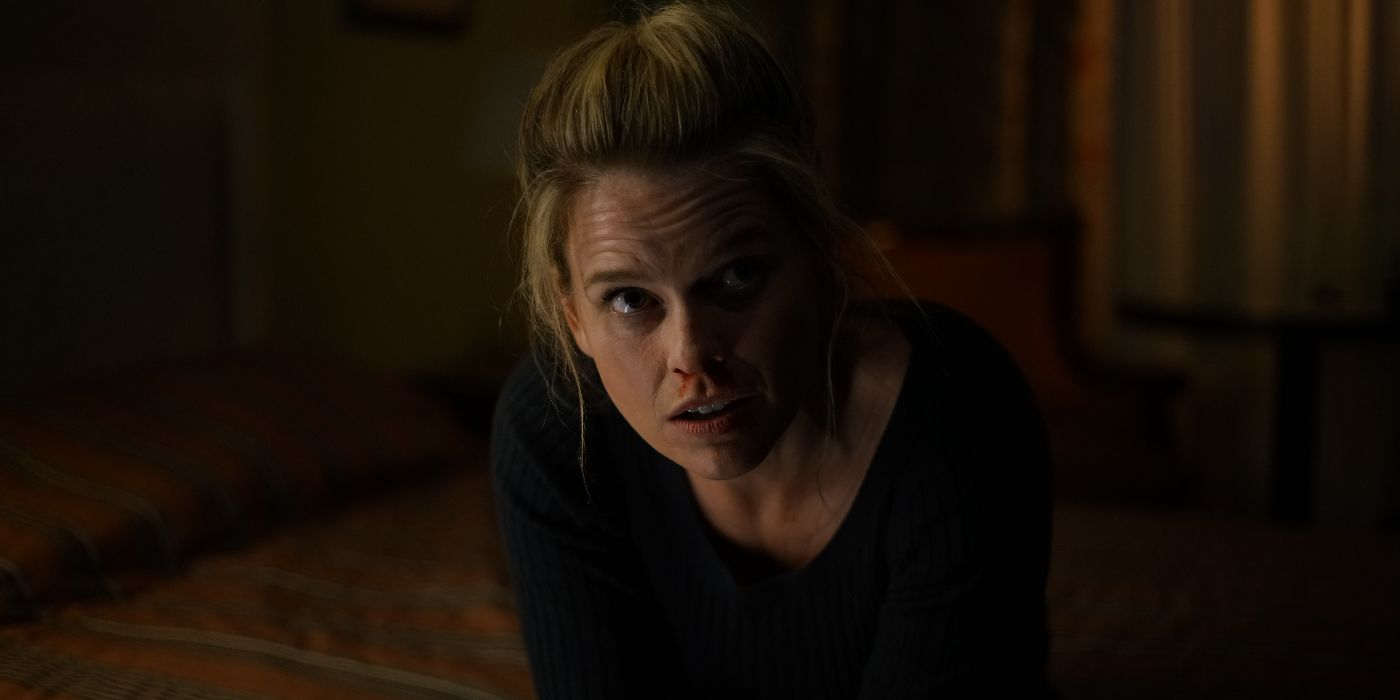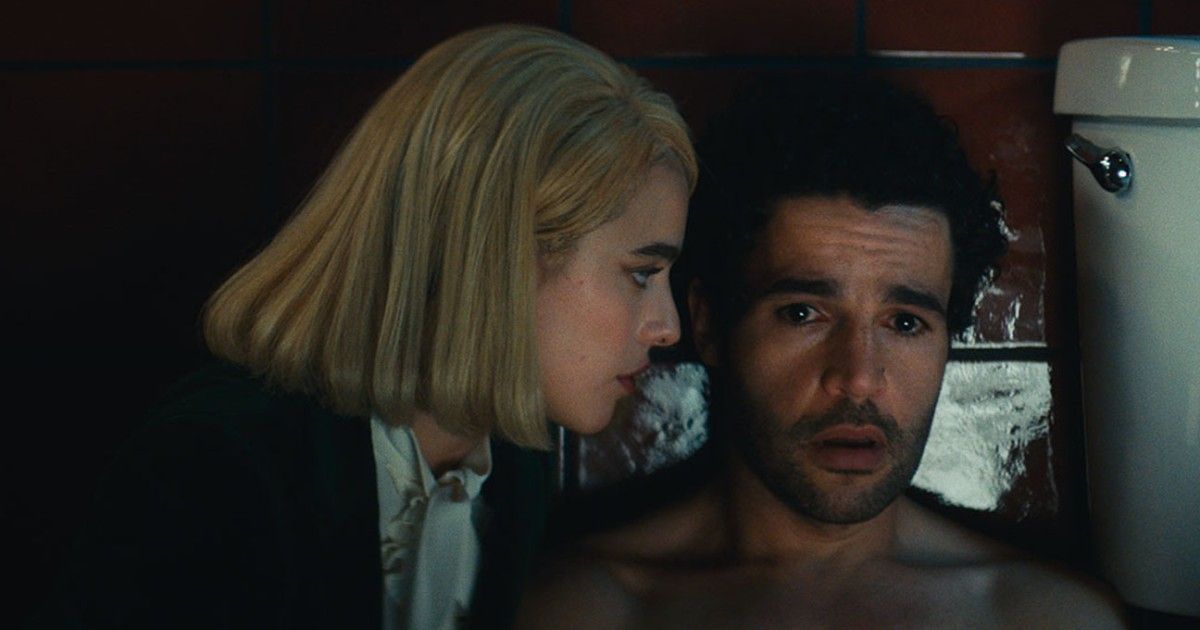Guy Pearce searches for a wealthy mogul’s missing daughter in a city of android slaves. Zone 414 is set in a near dystopian future where humanity has perfected artificial intelligence. “Synths” are allowed to interact with mankind freely in one designated place. Zone 414 is a playground where the rich and powerful can fulfill any deviant desire. It’s gritty, low-tech industrial grime mirrors the ugliness of base instincts.
The film opens with a unique job interview. David Carmichael (Guy Pearce), a disgraced former police detective, proves he has the will and discretion for a highly secretive assignment. Marlon Veidt (Travis Fimmel), the billionaire who perfected synthetics, has a problem. His beloved, rebellious daughter (Holly Demaine) has run away. Veidt believes she is hiding in Zone 414 with the help of his greatest creation.
Jane (Matilda Anna Ingrid Lutz) is Marlon Veidt’s masterpiece. A beautiful synth who follows orders as programmed, but somehow has the ability to question and understands the true nature of her reality. David is repulsed by Zone 414. Jane will always do as told, but doesn’t have to be forthcoming. They strike a bargain to find Veidt’s daughter. Jane is being terrorized by a mysterious stalker. She feels fear and loneliness. Jane agrees to help David if he can unmask her tormentor.
Zone 414 can be critiqued as an indie Blade Runner and Westworld knockoff. The future depicted here doesn’t have flying cars, 3D holographic characters, or Harrison Ford’s twenty million dollar salary. The characters use rotary phones, drive nineties era cabs, and watch vacuum tube televisions. Budgetary reasons aside, the retro technology fits the bleak narrative. This isn’t a glossy tale of intelligence leading to the betterment of society. The androids are living dolls subject to any cruel whim. The film addresses the horror they face from psychopaths.
Guy Pearce and Italian actress Matilda Lutz overcome head-scratching flaws with convincing performances. For example, every inch of Zone 414 is under constant surveillance. Andrew Baird, a production designer in his feature directorial debut, cuts away to black and white security cam footage of the lead characters throughout the film. How can Veidt’s daughter vanish without a trace? Thankfully, Pearce’s gravitas keeps the empathic focus on the androids’ plight. While Lutz’s existential crisis is entirely understandable. Jane ponders suicide as her only escape from Zone 414, but her programming won’t allow it. Death may be preferable to unending servitude and exploitation.
Anyone following the marvels at Boston Dynamics or Elon Musk’s Tesla Bot presentation knows that humanoid robots are right around the corner. They’ll go from lifting boxes to sexual and emotional companions in no time. Will beating a robot that can sense pain to an electronic pulp as a stress release be allowed? Zone 414 portrays a world that is frighteningly possible. The film stumbles at times, but effectively delivers a sordid warning of what’s to come. I also wonder if “Marlon Veidt” is a nod to Watchmen’s Adrian Veidt/Ozymandias. Zone 414 is a production of the Highland Film Group. It will have a theatrical, VOD, and digital release on September 3rd from Saban Films.
The views and opinions expressed in this article are those of the author and do not necessarily reflect the official policy or position of Movieweb.
You can view the original article HERE.






























